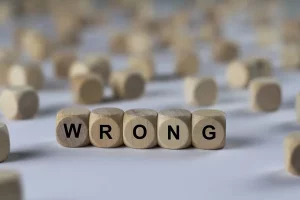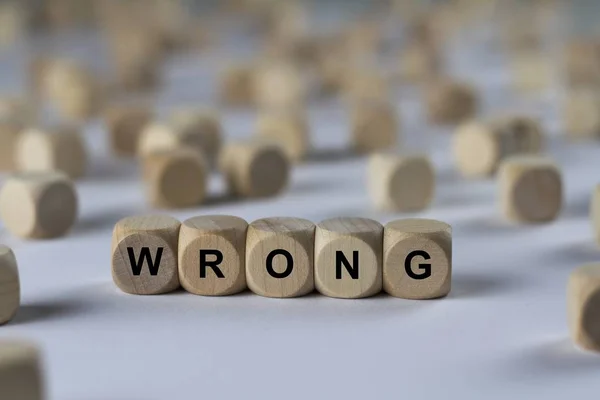“Do not put soo much efforts on a wrong guy; invest your time and energy wisely in someone who truly values and appreciates you.”
In the intricate dance of love, caution becomes the choreographer’s wand, and “Do Not Put Soo Much Efforts On A Wrong Guy” emerges as the guiding mantra.
Unraveling the delicate threads of affection, it beckons a symphony of self-awareness, urging hearts to invest their energies wisely in the pursuit of genuine connections

Do Not Put Soo Much Efforts On A Wrong Guy
The Pitfalls of Misplaced Efforts:
Investing time and energy in a relationship is natural, but it becomes detrimental when directed towards the wrong person. Recognizing the signs of a mismatch is vital for your emotional well-being.
Signs You’re on the Wrong Path:
Common indicators include inconsistency, lack of commitment, and unreciprocated efforts. These signs, often dismissed, are crucial in determining if your energy is well-placed.
The Emotional Toll:
Placing too much effort on someone who isn’t equally invested can lead to emotional exhaustion. Understanding the importance of balance in a relationship helps maintain a healthy emotional state.
Prioritizing Self-Love:
Redirecting your efforts towards self-love and personal growth is pivotal. A harmonious relationship starts with a solid foundation of self-worth and contentment.
Reclaiming Your Power:
By recognizing the mismatch and redirecting your efforts, you regain control over your life. Break free from the cycle of unfulfilling relationships and open the door to meaningful connections.
Signs of the Wrong Guy
Lack of reciprocity
Unequal emotional investment:
Watch for signs of one-sided emotional commitment, where you find yourself investing more in the relationship than your partner. Look out for a disproportionate balance in feelings and efforts.
Absence of effort from the other person:
Pay attention to the level of initiative and effort your partner puts into the relationship. If there’s a lack of reciprocity in actions, it might indicate an imbalance in commitment and interest.
Misaligned values and goals
Differences in long-term plans:
Assess whether your long-term aspirations align with your partner’s. Recognize disparities in life goals, such as career ambitions, family plans, and lifestyle preferences.
Conflicting values and beliefs:
Be aware of significant differences in core values and beliefs. Recognize when your moral compass or fundamental principles clash, as this can lead to ongoing conflicts and challenges in the relationship.
Unhealthy communication patterns
Poor communication skills:
Identify signs of ineffective communication, such as a lack of active listening, constant interruptions, or difficulty expressing thoughts and feelings. Effective communication is vital for a healthy relationship.
Frequent misunderstandings and conflicts:
Be cautious of recurring misunderstandings and conflicts. Continuous disagreements may indicate a breakdown in communication or fundamental issues that need addressing for a relationship to thrive.
Consequences of Investing in the Wrong Person
Emotional Exhaustion
Draining Emotional Resources
Individuals often find themselves depleted emotionally, as their energy is sapped in trying to navigate a relationship with the wrong person.
Coping with constant emotional demands can leave one feeling emotionally bankrupt.
Negative Impact on Mental Well-being
The toll on mental health becomes evident, with increased stress, anxiety, and a pervasive sense of unease.
Chronic exposure to negativity and toxicity can lead to emotional fatigue, adversely affecting overall well-being.
Wasted Time and Opportunities
Missed Chances for Growth and Self-discovery
Investing time in a misguided relationship can divert energy away from personal development and hinder individual growth.
Opportunities for self-discovery are sacrificed, delaying the journey to personal fulfillment.
Lost Opportunities for Healthier Relationships
Time spent on the wrong person could have been invested in cultivating meaningful connections with individuals who contribute positively to one’s life.
Choosing the wrong partner may prevent the establishment of healthier relationships that foster personal and emotional well-being.
Potential Long-term Damage
Emotional Scars and Trauma
The aftermath of a misguided investment often leaves emotional scars and lingering trauma.
Recovering from the emotional wounds inflicted in such relationships can be a prolonged and arduous process.
Difficulty Trusting Future Partners
Negative experiences with the wrong person can breed skepticism, making it challenging to trust potential future partners.
The enduring impact may manifest as a reluctance to open up emotionally, hindering the development of meaningful connections.
The Psychology Behind Investing in the Wrong Person
Fear of Being Alone
Investing in the wrong person often stems from the fear of being alone, a pervasive concern fueled by societal expectations and pressure.
In a world that emphasizes relationships, the societal narrative can exert significant influence, pushing individuals to enter connections hastily.
The pressure to conform to societal norms can lead to overlooking red flags in relationships, as the dread of solitude becomes overpowering.
Overcoming this fear requires a nuanced approach, focusing on personal growth and finding contentment in one’s own company, detaching from societal expectations and embracing the idea that being alone does not equate to failure or inadequacy.
Low Self-esteem and Self-worth
Investing in the wrong person is often rooted in low self-esteem and self-worth, where individuals seek validation through relationships.
The desire for external affirmation can lead to compromised judgment, as the need for validation overrides critical evaluation.
Building a strong sense of self-worth independently becomes paramount, emphasizing the importance of self-love and self-acceptance.
Breaking free from the cycle of seeking validation through relationships requires a commitment to personal development, fostering resilience and a healthy self-image.
FAQs
Why should I not put soo much efforts on a relationship with the wrong guy?
Putting excessive effort into a relationship with the wrong guy can lead to emotional exhaustion and dissatisfaction.
This explores the importance of recognizing compatibility and investing energy where it truly matters.
How can I identify if I’m putting too much effort into a relationship with the wrong guy?
Recognizing the signs of misdirected efforts is crucial. Learn to assess your relationship dynamics and understand when your efforts may be better spent elsewhere. This provides insights into self-awareness and relationship evaluation.
What are the consequences of putting too much effort into a relationship with the wrong guy?
Discover the potential pitfalls of investing time, emotions, and resources into a relationship that may not be the right fit.
This addresses the consequences and emphasizes the importance of redirecting efforts toward healthier and more fulfilling connections.
How can I balance giving in a relationship without putting too much effort into the wrong guy?
Striking the right balance in a relationship is essential. This offers practical tips and advice on navigating the fine line between genuine effort and overexertion, ensuring your contributions align with the health and longevity of the connection.
What role does self-worth play in avoiding the mistake of putting too much effort into the wrong guy?
Understanding your own value is crucial when navigating relationships. This delves into the connection between self-worth and relationship choices, empowering individuals to make informed decisions about where to invest their time and efforts.
Conclusion
In conclusion, it is paramount to recognize the significance of discernment in relationships and to heed the warning: “Do Not Put Soo Much Efforts On A Wrong Guy.”
Redirecting one’s energy towards individuals who reciprocate genuine intentions ensures a more fulfilling and balanced emotional investment, fostering healthier connections and personal well-being.
